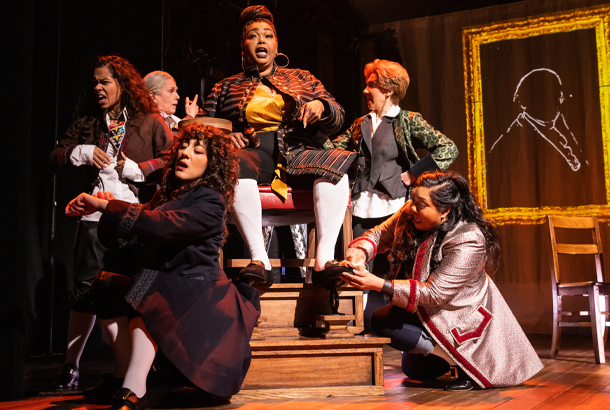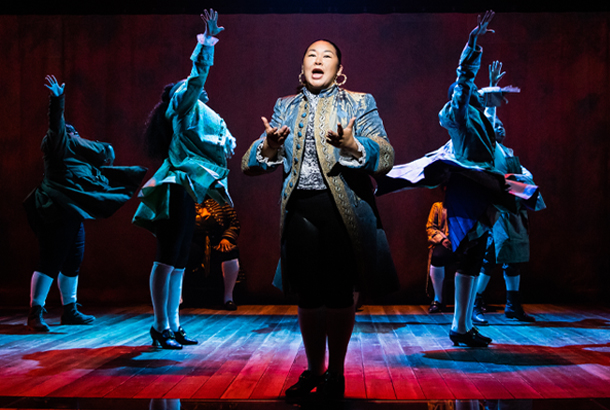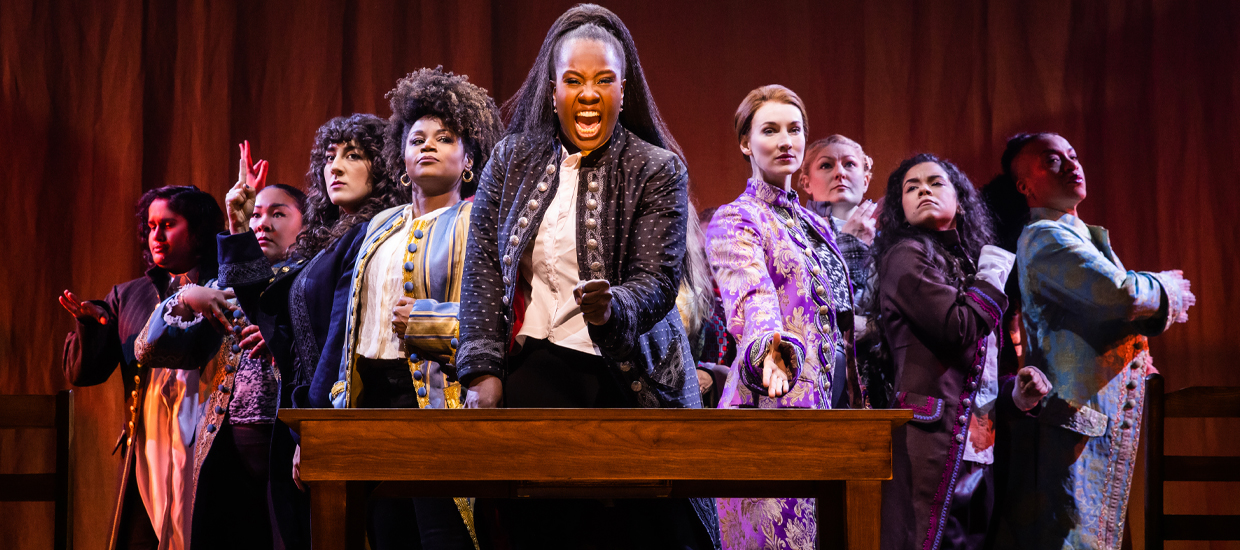The update shines a spotlight on who was left out of the Declaration of Independence
Diane Paulus and Jeffrey L. Page knew their version of the 1969 Tony Award–winning Broadway musical 1776 was going to work as soon as they began the casting process. Instead of asking the actors to prepare monologues, the co- directors told them to read extracts from the Declaration of Independence. “It was unbelievable to sit there and listen to that document read over and over and over by so many different people representing so many different identities,” Paulus says. “As directors, we’re always looking for ways to wake up a text. We’re kind of half asleep while we’re listening—how do you really hear the text as if you’re hearing it for the first time?”

What audiences will hear (and see) when they attend this new production—which officially opens October 6, starring a multiracial cast of female, trans, and nonbinary performers as the Founding Fathers—is that the Declaration of Independence did not grant life, liberty, or the pursuit of happiness to anyone on the stage of New York’s American Airlines Theatre. Not Crystal Lucas-Perry, a Black woman who plays John Adams; not Sav Souza, who identifies as queer and transgender and plays Dr. Josiah Bartlett; not Mehry Eslaminia, the daughter of Iranian and Salvadorean immigrants who plays Charles Thomson.
“I think with this cast, perhaps we start to see things anew, perhaps we are in the process of making the familiar strange,” Page says. “And in making the familiar strange, perhaps we are growing and expanding as humans. We’re not changing anything [in the show], but it kind of tricks the mind into thinking that something might be changed.” The revival was initially supposed to open in 2020, but the pandemic, of course, put it on pause. The murder of George Floyd that May, and the Black Lives Matter uprising that followed, made the reimagined production even more urgent. “The events of the day kind of came to the forefront, and we said, ‘We have to rethink what this is, because this is so pressing to our culture right now,’” Page says. The pandemic, Paulus adds, afforded them the time to ask, “How do we do this show in a way that we can fully embrace the necessary moment we’re in?”

Ultimately, the directors want viewers to rethink what they know about American history and their place in it—and, imperatively, how we can move forward together. “I believe that audiences will laugh,” Page says. “I believe that audiences will cry. I believe that audiences will be entertained. But I’m not necessarily interested in the final product being for the simple purpose of entertainment. I’m interested in transformation.”




